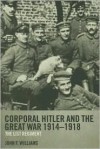Currently reading
PERILS OF A PILOT IN WARTIME

"Sonny" Ormrod epitomized both the unflinchingly honest and scrupulous diarist, as well as the dedicated & courageous fighter pilot. During his service in the Royal Air Force (RAF) - which he joined soon after finishing school in 1940, age 18 - Ormrod kept several diaries, detailing his experiences and impressions of his fellow pilots. It was his intention to make those diaries into a memoir after the war. Thus, this book by Brian Cull constitutes a belated (though abridged) memoir.
The book takes the reader from October 1941 - when Ormrod was in the UK with 605 Squadron awaiting an imminent posting overseas - to April 1942 - when Ormrod was serving with 185 Squadron on the besieged Mediterranean island of Malta. Not many people perhaps know that, at one point during the Second World War, Malta was the most heavily bombed piece of real estate on earth. It was the lynch pin in Britain's efforts to retain a presence in North Africa and the Mediterranean against the Axis Powers. From Malta, British air and naval vessels would harry German and Italian ships sending supplies to Rommel in the Western Desert during the height of the fighting there in 1941-42.
Ormrod arrived in Malta with 605 Squadron during November 1941. At the time Italy's Regia Aeronautica alone was bombing Malta, which the British were generally able to cope with. The Luftwaffe, who had had a presence over Malta earlier that year, had withdrawn its units to take part in Hitler's invasion of the Soviet Union in June 1941. This somewhat relieved the pressure on Malta for several months. As a result, sinkings of German and Italian ships became almost prohibitive to the Axis, so both the Germans and Italians resolved to destroy Malta through air assault. This is reflected in Ormrod's diary from December 1941 onwards, when the Luftwaffe returned to assist the Regia Aeronautica in trying to neutralize Malta.
Indeed, for Ormrod and his comrades, their job of helping to defend the island became an increasingly difficult and perilous undertaking. (The Maltese people also suffered greatly. Nevertheless, they endured the increasingly daily bombings from January 1942 with good grace. Ormrod's descriptions of the island, both aloft and on the ground, made tangibly real for me the stresses and horrors of what it must have been like to be in Malta at that stage of the war.)
Many pilots like Ormrod bravely and faithfully met their responsibilities, while others were malingerers and made excuses not to fly on certain missions. This angered Ormrod and several diary passages reflect his disgust and disdain for those squadron mates who were willful shirkers. Flying Hawker Hurricane fighters, they were outmatched in terms of performance and speed by the latest German and Italian fighters: the Messerschmitt 109F and the Macchi MC 202, respectively. One passage for me - from Tuesday, April 14, 1942 - illustrates the challenges and terrors of trying to cope with the daily attacks by what were now swarms of enemy aircraft:
"[Wigley - one of Ormrod's closest friends] landed with but eight gallons of petrol remaining. His bravery and contempt for the enemy almost at times approaches madness. If ever a pilot in this war deserved a DFC [Distinguished Flying Cross], I consider Plt. Off. Wigley to deserve one. No odds deter him. Whose courage surpasses his? Few could out-fly him. Yet since he has not an aircraft in which now here it can well be done, he is unlikely to win a DFC because he is unlikely to win six confirmed victories. Most probably some newly arrived Spitfire pilot, who has never taken the odds that Wigley has, nor at such a disadvantage will, if he has the luck and a little skill, mount a score of six soon, be awarded a DFC and acknowledged by the world as Wigley's superior; a hero of the Malta battles. Hurricanes without speed and cannon cannot hope, except rarely, to bring down fast and heavily armoured German aircraft. Whereas the Spitfires can do it often in spite of the opportunities their pilots waste. This is our moan. We love the old Hurricane that has carried us gallantly and saved us on innumerable occasions but we know that old age has now overcome it."
Sadly, Ormrod's luck would run out 8 days later, on his 20th birthday.
 3
3













